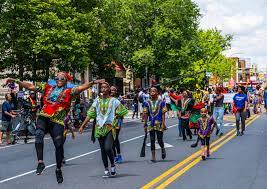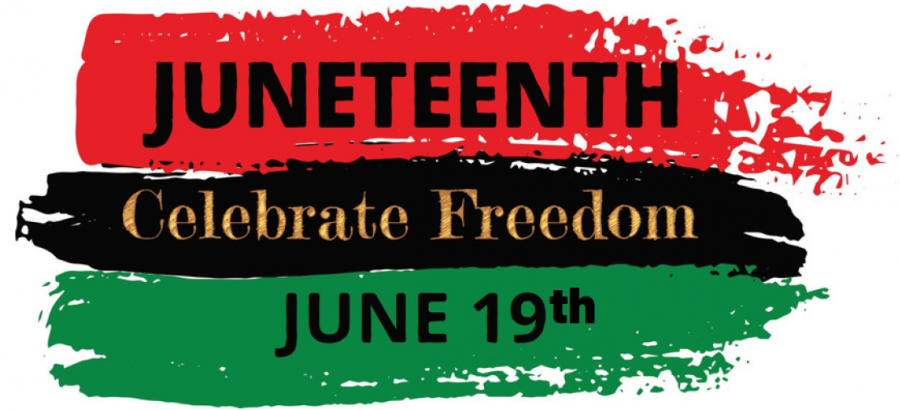Juneteenth is a significant holiday in American history that commemorates the emancipation of enslaved African Americans. 
Juneteenth, also known as Freedom Day or Emancipation Day, is observed on June 19th each year. It marks the day in 1865 when General Gordon Granger of the Union Army arrived in Galveston, Texas, and proclaimed the end of slavery in accordance with President Abraham Lincoln’s Emancipation Proclamation, which had been issued more than two years earlier on January 1, 1863.
To understand the significance of Juneteenth, it is essential to delve into the broader context of slavery in the United States. Slavery was deeply rooted in American society from the colonial era through the antebellum period. Enslaved African Americans endured unimaginable suffering and oppression, working under brutal conditions on plantations and in households across the country.
The Emancipation Proclamation, issued during the American Civil War, was a crucial step toward ending slavery. It declared that all slaves in Confederate-held territory were to be set free. However, the Proclamation’s impact was limited initially, as it relied on Union military victories to enforce it. The news of emancipation spread slowly, particularly in regions such as Texas, where the Confederate presence was strong.
On June 19, 1865, when General Granger arrived in Galveston with Union troops, he read General Order No. 3, which declared “that all slaves are free.” This announcement had a profound impact on the enslaved African Americans in Texas, who were finally informed of their freedom. The day came to be known as Juneteenth, derived from the combination of “June” and “nineteenth.”
Juneteenth celebrations began in Texas the following year, with freedmen and freedwomen organizing community gatherings, parades, and picnics to honor their newfound freedom. Over time, Juneteenth spread to other states as African Americans migrated from Texas to different parts of the country.
During the Reconstruction era that followed the Civil War, significant strides were made towards civil rights and equality for African Americans. However, these advances were short-lived, as the end of Reconstruction in 1877 marked the beginning of a long period of racial segregation and discrimination known as the Jim Crow era.

Despite the challenges faced by African Americans, Juneteenth remained a vital day of remembrance and celebration within the Black community. It served as a symbol of resilience, freedom, and the ongoing struggle for civil rights. Through the years, Juneteenth festivities encompassed various activities, including religious services, historical reenactments, family reunions, educational events, and cultural performances.
In the late 19th and early 20th centuries, Juneteenth celebrations were often supported by Black fraternal organizations, churches, and civic groups. These events fostered a sense of community, unity, and pride among African Americans, emphasizing their collective history and heritage.
The Civil Rights Movement of the 1950s and 1960s sparked renewed interest in Juneteenth, as activists sought to reclaim African American history and promote equality. Efforts were made to bring broader recognition to the holiday, with organizations like the National Association for the Advancement of Colored People (NAACP) and the Poor People’s Campaign actively supporting Juneteenth celebrations.
In recent decades, Juneteenth has gained increasing recognition and popularity across the United States. Several states have officially recognized it as a state holiday or a day of observance. On June 17, 2021, Juneteenth was signed into law as a federal holiday by President Joe Biden, making it the first new federal holiday established since Martin Luther King Jr. Day in 1983.
The designation of Juneteenth as a federal holiday represents a significant step in acknowledging the legacy of slavery and the ongoing struggle for racial equality in America. It provides an opportunity for all Americans to reflect on the history of slavery, the contributions of African Americans to society, and the work that still needs to be done to achieve true equality.
In conclusion, Juneteenth holds a pivotal place in American history as a commemoration of the end of slavery and the continuing fight for civil rights. It serves as a reminder of the resilience and perseverance of the African American community and highlights the ongoing struggle for equality in the United States.
Certainly! Here are more details about the history of Juneteenth:
- Origins of Juneteenth: The origins of Juneteenth can be traced back to June 19, 1865, when General Gordon Granger arrived in Galveston, Texas, and issued General Order No. 3, officially announcing the emancipation of enslaved African Americans in Texas. This news came more than two years after the Emancipation Proclamation was issued by President Abraham Lincoln.
- The Emancipation Proclamation: President Lincoln issued the Emancipation Proclamation on January 1, 1863, during the American Civil War. The proclamation declared that all slaves in Confederate-held territory were to be set free. However, it did not immediately free all enslaved individuals in the United States since it was contingent upon Union military victories and enforcement.
- Enforcement Challenges: The enforcement of the Emancipation Proclamation was challenging, particularly in regions under Confederate control. Texas, in particular, had a limited Union military presence, and the proclamation’s reach was not effectively extended to the state until General Granger’s arrival in 1865.
- Reaction and Celebration: When the news of emancipation reached enslaved African Americans in Texas on Juneteenth, it was met with a mix of jubilation, disbelief, and uncertainty. Many celebrations and gatherings emerged as communities organized parades, speeches, and religious services to commemorate the occasion.
- Spreading of Juneteenth: Juneteenth celebrations began in Texas but gradually spread to other states as African Americans migrated to different parts of the country. The celebrations often included traditional African cultural elements, such as music, dance, and storytelling.
- Role of Freedmen’s Bureau: The Freedmen’s Bureau, established by Congress in 1865, played a crucial role in helping newly emancipated African Americans adjust to their newfound freedom. The bureau provided essential services such as education, employment assistance, and legal representation.
- Growth and Decline: Juneteenth celebrations grew in popularity throughout the late 19th and early 20th centuries. However, they faced challenges during the Jim Crow era, a period marked by racial segregation and discrimination. Many states enacted laws to suppress African American rights and limit public gatherings, impacting Juneteenth festivities.
- Revitalization in the Civil Rights Era: The Civil Rights Movement of the 1950s and 1960s brought renewed attention to Juneteenth. Activists sought to reclaim African American history and promote equality, leading to increased support for Juneteenth celebrations.
- Recognition and Statehood: Over time, several states recognized Juneteenth as a state holiday or a day of observance. Texas was the first state to make Juneteenth an official holiday in 1980. Other states followed suit, with a total of 47 states recognizing Juneteenth in some form before it became a federal holiday.
- Federal Recognition: On June 17, 2021, President Joe Biden signed the Juneteenth National Independence Day Act into law, designating Juneteenth as a federal holiday. This milestone recognition acknowledged the historical significance of Juneteenth and its importance in commemorating the end of slavery.
- Juneteenth Today: Juneteenth celebrations continue to thrive across the United States, with activities ranging from community festivals and parades to educational events and art exhibitions. It serves as a time for reflection, remembrance, and celebration of African American heritage and achievements.
- Cultural Impact: Juneteenth has influenced various aspects of American culture, including music, literature, and visual arts. Artists, musicians, and writers have used their work to explore the themes of freedom, identity, and resilience associated with Juneteenth.
These additional details help paint a more comprehensive picture of the historical significance and evolution of Juneteenth as a holiday.











certainly like your website but you need to take a look at the spelling on quite a few of your posts Many of them are rife with spelling problems and I find it very troublesome to inform the reality nevertheless I will definitely come back again
I just could not leave your web site before suggesting that I really enjoyed the standard information a person supply to your visitors Is gonna be again steadily in order to check up on new posts